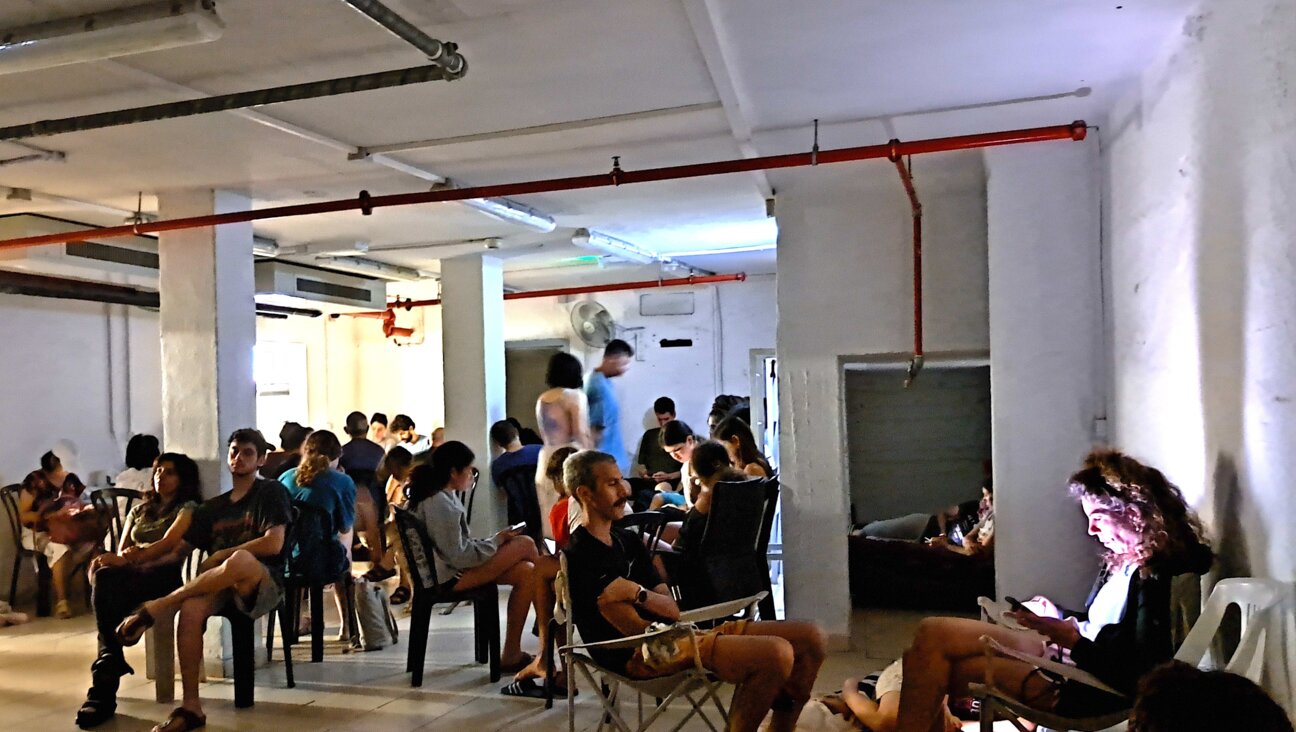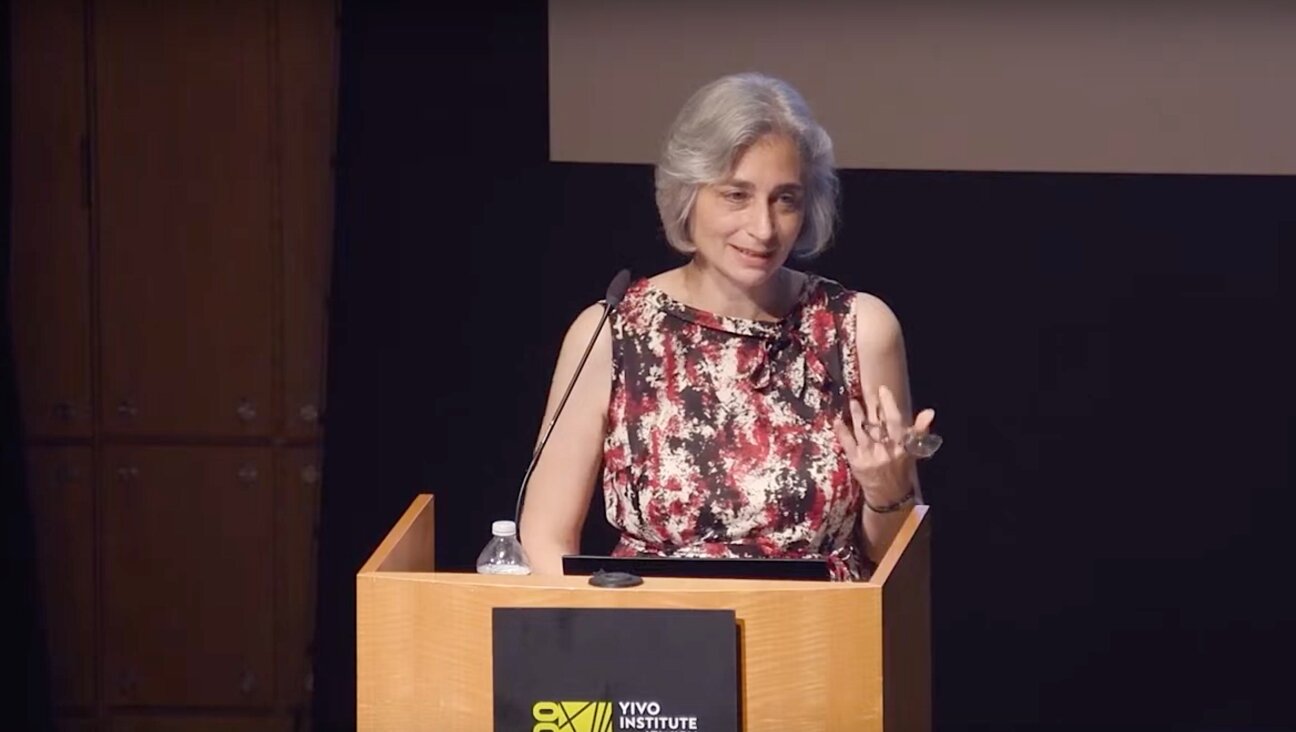ווידעאָ: הרבֿ סאָלאָווייטשיק דרשנט וועגן כּיבוד־אָבֿ־ואםWATCH: Rabbi Joseph B. Soloveitchik speaks on honoring one’s parents
אין דעם שיעור אויף ייִדיש, פֿאַרדאַמט דער רבֿ דעם ביטול וואָס דער מאָדערנער מענטש ווײַזט אַרויס צום עבֿר.

Image by Forverts
די וואָך איז אַ שיעור פֿונעם גרויסן רבֿ יוסף דבֿ הלוי סאָלאָווייטשיק ז״ל (באַקאַנט בײַ זײַנע תּלמידים און פֿאַרערער ווי פּשוט „דער רבֿ‟) וועגן כּיבוד אָבֿ ואם — דער מיצווה פֿון אָפּגעבן כּבֿוד טאַטע־מאַמע — און וועגן דעם ייִדישן קאָלעקטיוון זכּרון בכלל, אַרויסגעלאָזט געוואָרן דורך יוטוב מיט ענגלישע אונטערקעפּלעך.
די רעדע, וואָס איז אויף ייִדיש, האָט ער געגעבן אין יאָר 1953, ווי אַ יאָרצײַט־שיעור.
ציטירנדיק אַ ריי פּסוקים פֿון דער תּורה פֿאַרבינדט דער רבֿ די וויכטיקייט פֿון געדענקען נישט בלויז מיט דער מיצווה פֿון כּיבוד אָבֿ ואם, נאָר אויך מיט אַנדערע וויכטיקע טעמעס בײַ ייִדן ווי, למשל, דײַטשע פֿאַרגיטיקונג און דער וויכטיקייט פֿון צײַט אין דער ייִדישער הלכה און טראַדיציע.
אינעם ווידעאָ באַדויערט דער רבֿ וואָס דער מאָדערנער מענטש זוכט כּסדר „סענסאַציעס‟ און „פֿרישע דערפֿאַרונגען‟ און האָט במילא פֿאַרלוירן דעם זכּרון — אַ זאַך וואָס ער זעט ווי אַ מאָראַלישע טראַגעדיע: „דער מאָדערנער מענטש האָט מורא צו קוקן צוריק און באַטראַכט דעם גאַנצן עבֿר „מיט אַ געפֿיל פֿון ביטול און באַציט זיך צום נעכטן מיט גאווה.‟
דער שיעור איז פֿאַרכאַפּנדיק און באַלערנדיק, בפֿרט פֿאַר די פֿון אונדז וואָס האָבן קיין מאָל נישט זוכה געווען צו הערן זײַנע דרשות, וואָס ער האָט כּמעט תּמיד געגעבן אין זײַן נאַטירלעכן ליטווישן ייִדיש.
דער ווידעאָ איז אַ טייל פֿון אַ נײַער סעריע יוטובס פֿונעם רבֿס דרשות אויף ייִדיש, וואָס זײַנער אַ תּלמיד, ד״ר אַרנאָלד לוסטיגער, האָט געזאַמלט, איבערגעזעצט און אַרויפֿגעשטעלט אויף דער וועבזײַט „חומש מסורת הרבֿ‟, כּדי צו באַקענען דעם ברייטן עולם — סײַ די ייִדיש־קענער, סײַ די וואָס קענען נישט קיין ייִדיש — מיט די אָריגינעלע געדאַנקען און כאַריזמאַטישער וואַרעמקייט פֿונעם רבֿ, וואָס האָט יאָרן לאַנג פֿאַרכּישופֿט זײַנע צוהערער מיט די דרשות.






















